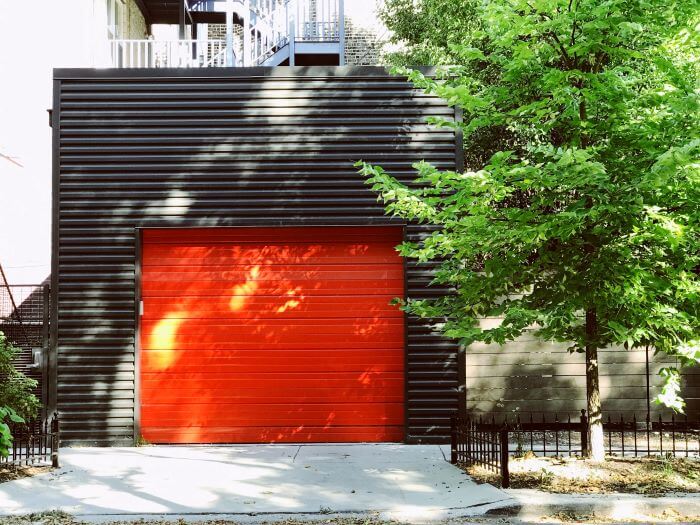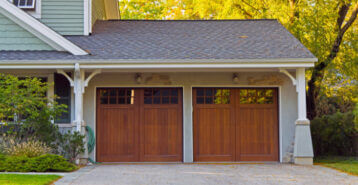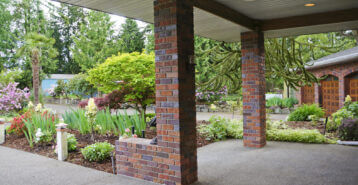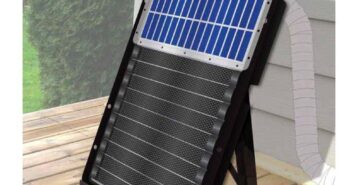Are you doing a home improvement project?
Modernize can pair you with three to four pros in your area, so you can compare options and save time and money.
Whether you’re looking to increase your living space or make some side cash by renting out a part of your home, you may have considered converting your garage. But how practical are these renovations, and does a converted garaged really offer much in terms of income generation or resale value?
This guide will take you through the decision process as you debate converting your garage into a living space. We’ll take a look at possible renovation options, their cost and their benefit to your bottom line.

The Pros and Cons
Weighing the pros and cons of converting a garage into a living space comes down to your personal preferences and the unique factors of the home as well as the general area in which you live.
When you convert your garage to a living space you lose out on multifunctional space that a garage allows as a place to store items and park your vehicles. What you get in return is a space that can only be used as indoor living space.
Additionally, you could lose out on income down the road when selling – especially if every other home in your neighborhood has a garage.
Finally, you’ll want to consider your options based on whether your garage is attached to your home. Attached garages can be easier to convert if they have existing infrastructure such as ductwork for heating and cooling. Standalone garages could be more costly to upgrade and won’t offer a seamless transition from your home for the added living space.
You can think of the pros and cons like this:
-
Pros
- Added living space
- Potential for rental income
- Possible increased resale value
-
Cons
- Loss of parking space
- Loss of storage space
- Potential loss on resale value
Tackling the Renovation
Converting a garage to a living space means making major changes to the lighting, heating and cooling systems, and plumbing if you’re looking to add something like a bathroom. In addition, many of these renovations will be dictated by local ordinances and building codes in your area.
Adding Windows and Doors to Your Garage
You’ll want to consider adding windows to your garage so that you do not wind up with a dark box at the end of your renovation. You might even be required to add windows based on your local building codes.
In addition, while some converted garages maintain use of the garage door, you’ll want to be sure your garage has a conventional entrance if you intend to use it as a rental and ensure any remaining garage doors are properly insulated or replaced to protect against the elements.
Heating and Cooling a Converted Garage
Many garages are not insulated and do not come with heating and cooling infrastructure unless they are attached to the main house. Even then, you might need to have your garage retrofitted to include a heating and cooling option.
Those options include standalone units, installation of ductwork or baseboard heating and cooling options. You will likely want to have your garage insulated to keep the space at optimal temperatures.
Lighting and Outlets
Garages are typically required to have just one light and one switch, but your average home and living space have multiples.
You’ll need to hire a licensed electrician to get this job done, so you aren’t living in a darkened room. Again, refer to your local building codes to ensure the new living space is brought up to speed.
Adding Plumbing to a Converted Garage
If you’re looking to add a bathroom to make your converted garage a standalone apartment unit or vacation rental, you’ll need to consider the expense of adding plumbing to the structure.
Find the Right Contractor for Your Project
Whether you’re ready to begin your project now or need some expert advice, our network of contractors are here to help. With a few simple questions, we’ll find the best local professionals for you
This could involve busting up the foundation to lay pipe, and it could be the most costly aspect of the renovation. Consider the fact that garages with built-in laundry might have an advantage on this cost as plumbing might already exist.
Flooring
Many garages sit at a lower level than your home, even when attached. In some cases, you’ll want to raise the floor. If you’re doing so, you’ll need to make sure that the new space still offers the correct ceiling heights dictated by your local government.
Then, you’ll want to lay down a new type of flooring material in your garage to cover up what is likely a cement slab. Options here are limitless from tile to plank flooring and beyond.
Resale Value and Potential Income
You can get a good idea of the income your converted garage could net by checking rental options in your area.
A one-bedroom or loft style apartment with its own entrance is likely comparable to a converted garage space you might offer.
The other option, of course, would be to rent the room out to visitors on a less frequent basis through vacation rental websites, which sometimes take a cut of your earnings.
In either case, you’ll want to check the local laws regarding rental properties in your area to see whether this is an approved use of your space. Many cities will take an additional tax on your vacation rental property, which you’ll want to factor into your income potential.
When it comes to resale value, having a converted garage is a mixed bag. Many buyers prefer to have a garage where they can store lawn equipment and park their vehicles to keep them out of the elements.
Other buyers might prefer the added living space, especially in parts of the country where real estate comes at a premium and individual lots are tight. You’ll also want to consider the local climate as you make this decision – de-icing your car each winter could get old if you don’t have a place to park.
Frequently Asked Questions
Do home buyers prefer dedicated parking or more living space? This depends on the area. The best resource for questions related to resale values in your particular area are local real estate agents. Connect with one in your city to see what comps are being listed for and to ask about the pros and cons.
How easy is it to convert a garage into a rental room? A garage conversion is a big undertaking depending on your goals for a finished product. If the garage is attached with dedicated heating and cooling, your job will be much smaller than a freestanding garage without either. Be sure to get several quotes to ensure you’re considering every facet of the project.
Can I rent my garage out? Local laws governing rental properties vary by municipality. Be sure to check with local zoning laws to make sure that you’re allowed to rent out. You’ll also want to consider the costs, as certain towns will take a vacation tax or property rental tax off of your income.
Next Steps
If you’re still trying to decide whether a garage conversion is worth the investment, start by reaching out to local professionals. Ask the local government what is allowed and what the restrictions are regarding garage conversions and rental properties, if that’s your end goal. Then, get some insight from a local real estate agent.
The agent will be able to tell you whether buyers in the area expect a garage or would be happy to purchase a home without one. Next, get with a contractor to plan out your project. Be sure to get quotes from several professionals to compare costs.
Find the Right Contractor for Your Project
Whether you’re ready to begin your project now or need some expert advice, our network of contractors are here to help. With a few simple questions, we’ll find the best local professionals for you
Reviews from Real Homeowners
Welcome to Homeowner Resources! We are the Modernize blog. Modernize pairs more than 3 million homeowners a year with pre-vetted contractors in their area. This blog started because we believe homeowners should know everything about their homes, from how their HVAC works to which front door colors they might love. On Homeowner Resources, you can find information on every part of your home, right down to how you can negotiate with contractors to get the best price. Here's more about the blog.
Need a contractor? Learn more about how Modernize finds the right pro for you.


